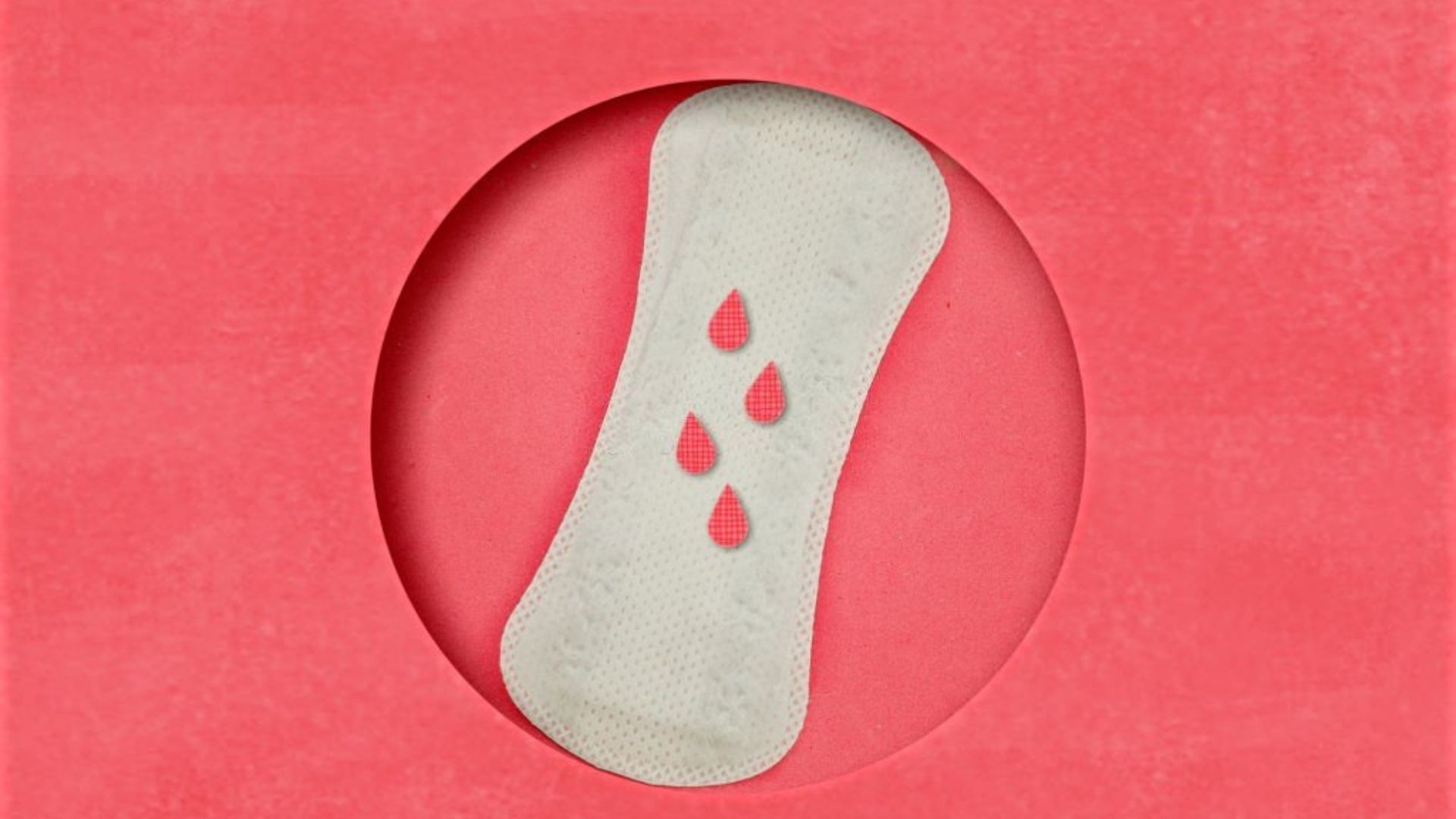
Get Your Period Overnight or Fast – 7 Secret Tips Revealed!
Hey there, ladies! Are you tired of waiting for your period to arrive? Do you wish you could make it come faster, so you can get back to your life? Well, you’re in luck, because FitGAG has the inside scoop on how to get your period overnight or fast! In this article, we’ll share some tips and tricks that you can use to jumpstart your menstrual cycle and get back to feeling like yourself again.
How to Get Period Overnight or Fast: Everything You Need to Know
If you’re eagerly waiting for your period to start and wondering how to get it to come faster, you’re not alone. Many women want to induce their period, especially if they have an upcoming event or travel planned. While there is no guaranteed way to make your period come overnight or fast, there are several things you can try to encourage your menstrual cycle to begin. In this article, we will explore some of these methods, along with their potential benefits and risks.
How to Get Periods Fast: 7 Ways to Induce Menstruation Naturally
While it’s not possible to make your period come overnight, there are several natural ways to encourage your menstrual cycle to start sooner. If you’re looking for tips on how to get periods fast, we’ve got you covered. In this article, we’ll discuss seven ways to induce your period naturally, from increasing your intake of vitamin C to practicing relaxation techniques.
#1 Increase Your Vitamin C Intake
Studies suggest that vitamin C can aid the production of estrogen, a hormone that thickens the uterus lining and leads to the onset of periods. While there is no scientific evidence, some women claim that taking vitamin C supplements or eating vitamin C-rich foods can help induce their period. Fruits and vegetables that are high in vitamin C include:
- Oranges
- Papaya
- Broccoli
- Grapefruit
- Green bell peppers
#2 Warm Water Baths And Compresses
A warm water bath or compress can help relax muscle tension and relieve emotional stress, which can contribute to the onset of periods. Some women swear by taking a warm bath or applying a warm compress to their abdomen to induce their period. However, there’s no scientific evidence to support this claim. Nevertheless, a warm water bath or compress can help improve blood flow to the pelvic area, which can stimulate menstruation.
#3 Cinnamon
Cinnamon is a spice that has been used for its medicinal properties for centuries. According to a study, cinnamon has anti-spasmodic properties that can relieve menstrual cramps and pain. It also acts as a vasodilator, which improves blood flow to the uterus and aids in regulating an irregular menstrual cycle.
Cinnamon can be consumed in various ways, including as a tea, supplement, or added to food. To make cinnamon tea, add one teaspoon of cinnamon powder to a cup of boiling water and let it steep for 10-15 minutes. You can also add cinnamon to your oatmeal, smoothies, or baked goods.
#4 Turmeric
Turmeric is a spice that has been used for centuries for its medicinal properties. It is believed to influence estrogen and progesterone levels in the body, which can help regulate the menstrual cycle and induce menstruation.
While scientific evidence is inconclusive, some women report success in using turmeric to induce their period. To incorporate turmeric into your diet, you can add it to your meals or make a warming drink by mixing it with milk or water and other spices and sweeteners. Some popular turmeric recipes include:
- Golden milk: a warm drink made with turmeric, milk, honey, and spices
- Turmeric tea: a tea made with turmeric, ginger, and honey
- Turmeric rice: a flavorful rice dish made with turmeric, cumin, and other spices
#5 Reduce Stress And Regulate Your Menstrual Cycle
As a woman, your menstrual cycle is an important indicator of your reproductive health. A missed or delayed period can be a cause of concern, but there are a variety of factors that can impact your menstrual cycle, one of which is stress. When you experience stress, your body produces hormones like cortisol and adrenaline, which can interfere with the hormones needed for a regular menstrual cycle. In this article, we’ll explore some techniques to reduce stress and regulate your menstrual cycle.
Understanding the Connection Between Stress and Menstrual Cycle
Stress is a common experience that can impact various aspects of your health, including your menstrual cycle. When you experience stress, it can disrupt the balance of hormones in your body, leading to changes in your menstrual cycle. This can manifest as missed periods, delayed periods, or even heavier or lighter periods.
Relaxation as a Remedy for Stress
To reduce stress and regulate your menstrual cycle, it’s important to prioritize relaxation. There are various techniques you can use to enhance relaxation, including:
Lowering Your Workload
If you’re experiencing stress due to a heavy workload, consider delegating tasks, setting realistic goals, or taking breaks throughout the day.
Spending Time with Loved Ones
Social support is an effective stress-buster. Spending time with friends and family can help you feel more relaxed and supported.
Exercising
Exercise is a powerful stress reliever. Whether it’s a brisk walk or a yoga class, incorporating physical activity into your routine can help reduce stress and promote a regular menstrual cycle.
Taking up a Pleasurable Hobby
Engaging in a hobby you enjoy can be a great way to unwind and reduce stress. Whether it’s painting, gardening, or reading, find an activity that brings you joy.
Utilizing Mindfulness or Meditation Practices
Mindfulness and meditation practices can help you cultivate a sense of calm and relaxation, even during stressful times. Consider incorporating these practices into your daily routine to help regulate your menstrual cycle.
Stress can have a profound impact on your menstrual cycle. By prioritizing relaxation and incorporating stress-reducing techniques into your daily routine, you can help regulate your menstrual cycle and promote overall reproductive health. Remember, what works for one person may not work for another, so experiment with different techniques to find what works best for you.
#6 How Sex Affects Your Menstrual Cycle: Understanding The Connection
Your menstrual cycle is a natural part of your reproductive health, and it’s impacted by a variety of factors, including sexual activity. In this article, we’ll explore how sex affects your menstrual cycle, and how regular sexual activity can promote overall reproductive health.
How Sex Impacts Your Menstrual Cycle
Sexual activity, including vaginal stimulation, increases blood flow to the vagina, which can cause it to contract. This contraction can create a space that draws menstrual blood downward, leading to the shedding of the uterine lining and the onset of menstruation.
In addition, semen contains prostaglandins, which can help soften the cervix and promote menstruation. This can occur through both vaginal penetration and non-penetrative sexual activity. While the connection between sex and menstruation is not fully understood, some studies suggest that sexual activity can shorten the duration of your menstrual cycle.
How Regular Sexual Activity Can Promote Reproductive Health
Regular sexual activity can offer a range of benefits for reproductive health. These benefits include:
Reducing Stress and Anxiety
Sexual activity can be a powerful stress-buster. It releases endorphins and promotes relaxation, which can help reduce stress and anxiety. By reducing stress, you may be able to regulate your menstrual cycle and reduce the risk of irregular periods.
Maintaining Hormonal Balance
Sexual activity can also help maintain a healthy hormonal balance. Regular sexual activity has been linked to increased levels of estrogen, which can promote a regular menstrual cycle.
Promoting Intimacy and Connection
Sexual activity can promote intimacy and connection between partners. This can be particularly important during menstruation, which can be a challenging time for some women. By promoting a sense of closeness, sexual activity can help reduce anxiety and improve overall emotional wellbeing.
Sexual activity can impact your menstrual cycle in a variety of ways. Whether it’s through vaginal stimulation or the softening of the cervix, sexual activity can promote the onset of menstruation. Additionally, regular sexual activity can offer a range of benefits for reproductive health, including reducing stress and anxiety, maintaining hormonal balance, and promoting intimacy and connection. As with any aspect of your reproductive health, it’s important to prioritize communication and consent with your partner, and to seek medical advice if you have concerns about your menstrual cycle.
#7 How Hormonal Birth Control Can Help Regulate Your Menstrual Cycle
Irregular periods can be a frustrating and stressful experience for many women. One potential solution is hormonal birth control, which can help regulate your menstrual cycle. In this article, we’ll explore how hormonal birth control works, its potential side effects, and what to consider before making a decision.
Understanding Hormonal Birth Control
Hormonal birth control is a method of contraception that works by regulating the levels of hormones in your body. Birth control pills, for example, contain a combination of estrogen and progestin, which can prevent ovulation and regulate your menstrual cycle. Other forms of hormonal birth control include injections, patches, and vaginal rings.
How Hormonal Birth Control Can Regulate Your Menstrual Cycle
One of the main benefits of hormonal birth control is its ability to regulate your menstrual cycle. By preventing ovulation and regulating the levels of hormones in your body, these contraceptives can provide some certainty about when your period will show up. This can be particularly helpful for women with irregular periods, as it can help reduce stress and anxiety.
Potential Side Effects of Hormonal Birth Control
While hormonal birth control can be an effective way to regulate your menstrual cycle, it’s important to consider the potential side effects. These can include:
Nausea and Headaches
Some women may experience nausea and headaches when they first start using hormonal birth control. This is usually temporary and subsides after a few weeks.
Mood Changes
Hormonal birth control can impact your mood, leading to feelings of depression or anxiety. If you experience these symptoms, talk to your doctor about adjusting your dosage or trying a different form of contraception.
Changes in Menstrual Flow
Some women may experience changes in their menstrual flow when using hormonal birth control. This can include lighter periods, shorter periods, or no periods at all.
What to Consider Before Choosing Hormonal Birth Control
Before choosing hormonal birth control, it’s important to talk to your doctor about your options and any potential side effects. Factors to consider include:
Your Health History
Your health history can impact your eligibility for hormonal birth control. If you have a history of blood clots, stroke, or certain types of cancer, for example, you may need to consider alternative forms of contraception.
Your Lifestyle
Your lifestyle can also impact your choice of contraception. For example, if you have trouble remembering to take a pill every day, a long-acting form of contraception may be a better option.
Your Budget
Hormonal birth control can be expensive, particularly if you don’t have health insurance. Be sure to consider the cost of your chosen form of contraception before making a decision.
Hormonal birth control can be an effective way to regulate your menstrual cycle and reduce the stress and anxiety associated with irregular periods. However, it’s important to consider the potential side effects and talk to your doctor about your options before making a decision. With the right information and guidance, you can make an informed decision about the best form of contraception for your needs.
Reasons Why Your Period Might Be Delayed
Having a delayed period can be worrying, especially if you’re used to having regular cycles. However, there are several reasons why your period might be delayed, and most of them are not serious. In this article, we’ll explore some of the most common causes of delayed periods and how they affect your body.
How Stress Can Affect Your Menstrual Cycle And Overall Health
Stress is a part of life, but when it becomes chronic or overwhelming, it can affect your menstrual cycle. When you’re stressed, your brain sends signals to your endocrine system to release hormones that activate your body’s fight-or-flight response. These hormones can suppress some bodily functions, including those of your reproductive system.
For instance, stress can stop ovulation by disrupting the normal production of reproductive hormones. Without ovulation, your period may be delayed or even missed altogether. In fact, studies show that stress is a common cause of menstrual irregularities in women of all ages. Therefore, it’s important to find ways to manage stress, such as exercise, meditation, or therapy, to maintain a healthy menstrual cycle.
PCOS: How It Affects Your Menstrual Cycle And Overall Health
Polycystic ovary syndrome (PCOS) is a hormonal disorder that affects millions of women worldwide. It occurs when the ovaries produce too much androgen, a male hormone that can interfere with ovulation and menstruation. In this article, we’ll explore how PCOS affects your menstrual cycle and overall health.
Menstrual Irregularities
One of the most common symptoms of PCOS is menstrual irregularities. Women with PCOS may experience infrequent, prolonged, or heavy periods, or even miss periods altogether. This is because the excess androgen can disrupt the normal production of female hormones, such as estrogen and progesterone, which regulate the menstrual cycle.
Furthermore, women with PCOS may have multiple cysts on their ovaries, which can interfere with ovulation. Without ovulation, the menstrual cycle can become irregular, and it may be difficult to get pregnant.
Physical Symptoms
PCOS can also cause several physical symptoms that can affect your appearance and self-esteem. These include:
- Hirsutism: excessive hair growth on the face, chest, back, or other parts of the body
- Acne: breakouts on the face, chest, or upper back
- Hair loss: thinning of hair on the scalp or excess hair shedding
- Weight gain: difficulty losing weight or weight gain, especially around the waistline
- Skin discoloration: dark patches of skin on the neck, underarms, groin, or other areas
These symptoms can be distressing and may require medical intervention to manage.
Health Risks
PCOS is not just a cosmetic concern; it can also increase your risk of several health problems, including:
- Diabetes: insulin resistance, a common feature of PCOS, can lead to high blood sugar levels and type 2 diabetes
- High blood pressure: PCOS is associated with high blood pressure, which can increase the risk of heart disease and stroke
- Sleep apnea: women with PCOS are more likely to have sleep apnea, a condition in which breathing stops and starts during sleep
- Infertility: PCOS is a leading cause of infertility in women due to irregular ovulation and menstrual cycles
Treatment Options
PCOS is a chronic condition, but it can be managed with appropriate medical care. Treatment options depend on the severity of your symptoms and whether you’re planning to get pregnant. Some options include:
- Lifestyle changes: exercise, healthy diet, and weight loss can improve symptoms and reduce health risks
- Medications: hormonal birth control, metformin, and other medications can regulate menstrual cycles, reduce androgen levels, and manage other symptoms
- Fertility treatments: if you’re trying to conceive, your doctor may recommend ovulation induction, intrauterine insemination (IUI), or in vitro fertilization (IVF) to increase your chances of pregnancy.
PCOS is a complex condition that can affect your menstrual cycle, physical appearance, and overall health. If you suspect that you have PCOS, it’s important to see your doctor for a proper diagnosis and treatment. With appropriate care, you can manage your symptoms and live a healthy life.
How Thyroid Problems Can Affect Your Menstrual Cycle And Overall Health
Your thyroid gland plays a vital role in regulating many bodily functions, including your menstrual cycle. When your thyroid function is disrupted, it can cause a range of symptoms, including menstrual irregularities. In this article, we’ll explore how thyroid problems can affect your menstrual cycle and overall health.
Hypothyroidism and Menstrual Irregularities
Hypothyroidism is a condition in which the thyroid gland does not produce enough thyroid hormones. This can slow down your metabolism and affect many bodily functions, including your menstrual cycle. Women with hypothyroidism may experience:
- Heavy, prolonged, or irregular periods
- Shorter or longer menstrual cycles
- Missed periods or amenorrhea (absence of periods)
These symptoms can be due to the disruption of the hypothalamic-pituitary-ovarian axis, which regulates the menstrual cycle. In addition, hypothyroidism can also cause other symptoms, such as fatigue, weight gain, cold intolerance, and dry skin.
Hyperthyroidism and Menstrual Irregularities
Hyperthyroidism is a condition in which the thyroid gland produces too much thyroid hormones. This can speed up your metabolism and affect many bodily functions, including your menstrual cycle. Women with hyperthyroidism may experience:
- Light, infrequent, or absent periods
- Shorter menstrual cycles
- Spotting between periods
These symptoms can be due to the disruption of the hypothalamic-pituitary-ovarian axis, similar to hypothyroidism. However, hyperthyroidism can also cause other symptoms, such as palpitations, heat intolerance, weight loss, anxiety, and tremors.
Other Symptoms of Thyroid Problems
In addition to menstrual irregularities, thyroid problems can cause several other symptoms that can affect your overall health and well-being. These include:
- Changes in appetite and weight
- Fatigue and weakness
- Anxiety and irritability
- Insomnia or sleeping difficulties
- Hair loss or thinning
- Dry skin and brittle nails
- Muscle aches and joint pain
If you suspect that you have a thyroid problem, it’s important to see your doctor for a proper diagnosis and treatment. Thyroid problems can be managed with medications, lifestyle changes, or surgery, depending on the type and severity of the condition.
Thyroid problems can have a significant impact on your menstrual cycle and overall health. If you’re experiencing menstrual irregularities or other symptoms, talk to your doctor to rule out any underlying thyroid issues. With proper care, you can manage your symptoms and maintain a healthy lifestyle.
The Risks of Inducing a Period If You Are Pregnant
Missing a period can be a sign of pregnancy, but it can also be due to other factors, such as stress, weight changes, or medical conditions. Some people may try to induce a period using emmenagogues, substances that can stimulate menstrual bleeding. However, inducing a period when you’re pregnant can have serious consequences for your health and your baby’s health. In this article, we’ll explore the risks of inducing a period if you are pregnant.
The Risks Of Emmenagogues During Pregnancy
Emmenagogues are substances that can help to bring on a period, but they can also act as contraceptives. This means that taking emmenagogues during pregnancy can cause a miscarriage or terminate the pregnancy. Some common emmenagogues include:
- Parsley
- Ginger
- Vitamin C
- Dong Quai
- Pennyroyal
These substances can stimulate the uterus and cause contractions, which can lead to bleeding and the expulsion of the fertilized egg. Therefore, it’s important to avoid emmenagogues if you suspect you might be pregnant.
The Risks Of Inducing A Period During Pregnancy
Inducing a period when you’re pregnant can also be dangerous for your health and your baby’s health. If you’re pregnant, your body is already undergoing significant changes to support the growth and development of your baby. Trying to induce a period can disrupt these processes and cause complications such as:
- Heavy bleeding: inducing a period during pregnancy can cause excessive bleeding, which can lead to anemia and other health problems.
- Infection: inducing a period can increase the risk of infection, as it can introduce bacteria into the uterus and cervix.
- Preterm labor: inducing a period during pregnancy can stimulate uterine contractions, which can lead to premature labor and delivery.
Therefore, it’s essential to avoid trying to induce a period during pregnancy and seek medical advice if you have concerns about your menstrual cycle or pregnancy.
Inducing a period when you’re pregnant can have serious consequences for your health and your baby’s health. If you suspect you might be pregnant, it’s important to confirm the pregnancy and seek medical advice before taking any emmenagogues or trying to induce a period. Your doctor can help you to manage your symptoms and ensure a healthy pregnancy and delivery.
When to See a Doctor for Menstrual Irregularities
Menstrual irregularities can be a sign of an underlying medical condition or lifestyle factor. It’s important to see a doctor if you’re experiencing changes in your menstrual cycle or other symptoms that may indicate a problem. In this article, we’ll explore when to see a doctor for menstrual irregularities.
Keeping Records Of Your Menstrual Cycle
Keeping a record of your menstrual cycle can be helpful when you see your doctor. Your doctor can use this information to determine the cause of your menstrual irregularities and recommend treatment options. You should record the start and end dates of your period, as well as any changes in the flow or duration.
In addition, you should also note any other symptoms you’re experiencing, such as cramping, bloating, headaches, or mood changes. This can help your doctor to make a more accurate diagnosis and recommend appropriate treatments.
When To See A Doctor
If you’re experiencing menstrual irregularities or other symptoms, you should see a doctor right away. Some specific situations when you should seek medical attention include:
- Pregnancy: if you suspect you’re pregnant, you should see a doctor for confirmation and prenatal care.
- Missed periods: if you miss three menstrual cycles in a row, you should see a doctor to determine the cause.
- Changes in menstrual cycle: if your periods become heavier or erratic, or if you experience bleeding in between periods or after sex, you should see a doctor to rule out any underlying conditions.
- Menopause: if your periods end before the age of 45, or you continue to have periods after the age of 55, you should see a doctor to discuss your options for managing menopause symptoms.
- Unusual symptoms: if you experience unusually heavy bleeding, fever, extreme pain, nausea and vomiting, or bleeding that lasts longer than seven days, you should see a doctor right away.
Your doctor can perform a physical exam, take a medical history, and order tests to determine the cause of your menstrual irregularities. Treatment options may include medications, lifestyle changes, or surgery, depending on the underlying condition.
Menstrual irregularities can indicate an underlying medical condition or lifestyle factor. If you’re experiencing changes in your menstrual cycle or other symptoms, it’s important to see a doctor for a proper diagnosis and treatment. Keeping records of your menstrual cycle and symptoms can help your doctor to make an accurate diagnosis and recommend appropriate treatments.
Frequently Asked Questions About Menstruation
Menstruation is a natural process that occurs in most women of reproductive age. However, there are many questions and concerns that women may have about their periods. In this article, we’ll answer some of the most frequently asked questions about menstruation.
Can Period Blood Get Stuck?
Yes, period blood can get stuck in the uterus, which can cause severe menstrual cramps and delay the onset of your period. This condition is known as hematocolpos or hematometra, and it can be caused by an obstruction in the cervix or vagina. Treatment options may include dilation and curettage or surgical removal of the obstruction.
How Can I Increase My Period Flow?
While there is no surefire way to increase your period flow, you can try some natural remedies such as herbs like turmeric and cinnamon or activities like sexual intercourse and yoga to stimulate blood flow. However, it’s important to consult your doctor before trying any new remedies or activities, especially if you have an underlying medical condition.
Can I Wear A Pad Overnight?
If you have a light to moderate flow, you can wear a pad overnight. It’s important to change your pad every 6-8 hours to prevent the risk of infection or discomfort. If you have a heavy flow or experience leakage at night, you may need to use a thicker pad or consider other menstrual products such as menstrual cups or period underwear.
Does Pineapple Make Your Period Come Faster?
Pineapple contains bromelain, an enzyme that may help to reduce inflammation in the body. Inflammation can cause menstrual irregularities and delays, but there is no scientific evidence to support the claim that pineapple can make your period come faster. It’s important to discuss any concerns or questions about your menstrual cycle with your doctor.
Menstruation can raise many questions and concerns for women. If you have any concerns about your period or menstrual health, it’s important to speak with your doctor for proper diagnosis and treatment. Natural remedies or activities may help to stimulate blood flow and reduce inflammation, but it’s essential to consult your doctor before trying any new treatments or activities.
Conclusion
So there you have it, ladies! With these tips and tricks from FitGAG, you can get your period overnight or fast and get back to your life. However, it’s important to remember that your menstrual cycle is a natural process, and it’s not always possible to control when it happens. If you have concerns about your menstrual cycle or reproductive health, be sure to consult with a healthcare professional. Stay tuned to FitGAG for more helpful tips and tricks!











